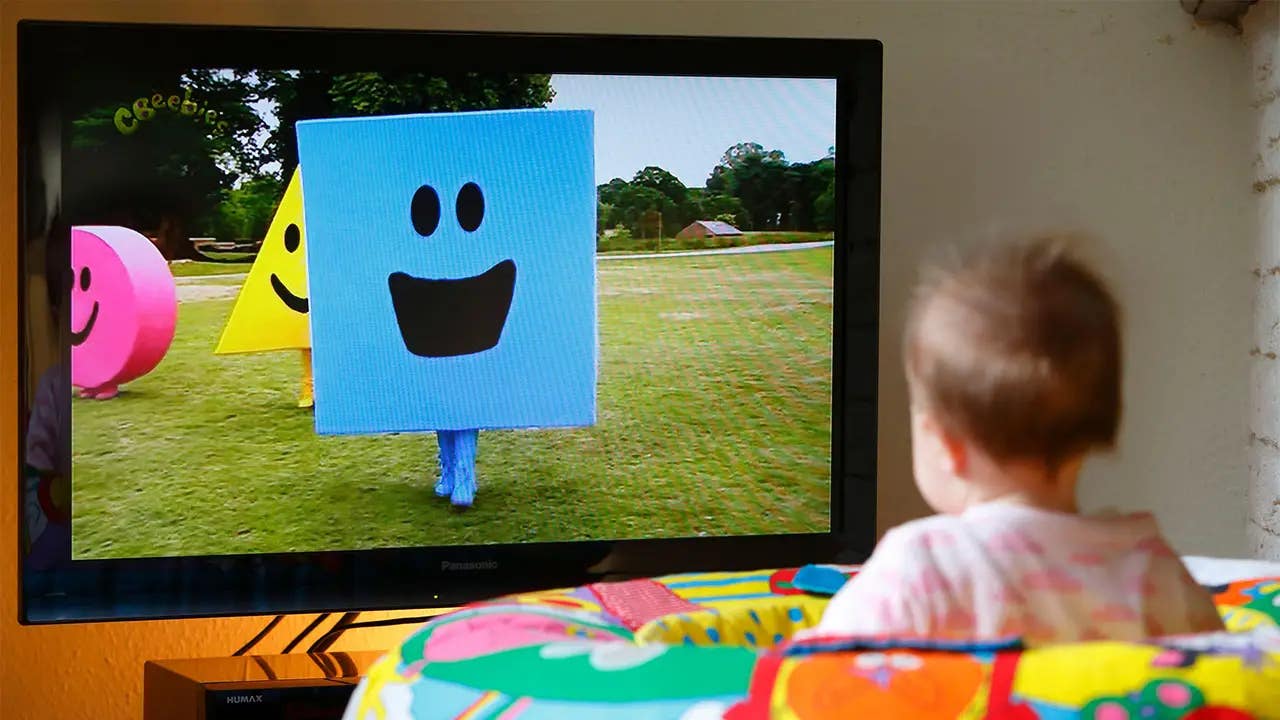Major study finds that watching too much TV can hurt brain development
Study finds early-life screen exposure affects sensory processing in toddlers, increasing risks of ADHD and autism-related behaviors.

By 12 months of age, even minimal screen exposure was linked to more than double the odds of showing intense low-registration sensory behaviors by 33 months. (CREDIT: CC BY-SA 4.0)
From televisions in living rooms to tablets in playrooms, digital screens have become common in homes everywhere. Toddlers today encounter screens far more often than children in previous generations. Yet, the impact of this early-life exposure on their growing brains is just now becoming clear.
New research highlights that excessive screen time during infancy might significantly influence a child's sensory processing, leading to issues affecting daily behavior, learning, and overall development.
In a groundbreaking study led by Karen Heffler, MD, at Drexel's College of Medicine and published in JAMA Pediatrics, scientists have found strong connections between early exposure to television and unusual sensory behaviors.
These behaviors could indicate potential developmental problems, including attention deficit hyperactivity disorder (ADHD) and autism spectrum disorder (ASD).
How Screens Shape Sensory Development
Sensory processing refers to how the brain receives, interprets, and responds to sensory information from sight, sound, touch, taste, and motion. Healthy sensory processing allows children to respond appropriately to everyday stimuli, helping them interact effectively with their surroundings.
However, when sensory processing is disrupted, children might display unusual behaviors. These can range from being overly sensitive to sounds and textures to seeking constant stimulation through movement or touch.
Previous studies suggest that sensory processing problems are common among children with ADHD, ASD, and other developmental disorders. For instance, children with autism might display extreme sensitivity to loud noises or bright lights.
Related Stories
This heightened sensitivity often results in anxiety, irritability, hyperactivity, and repetitive actions. Similarly, sensory difficulties in children with ADHD correlate with reduced self-control, greater anxiety, and lower overall life satisfaction.
Linking Screen Exposure to Sensory Challenges
To better understand these connections, the Drexel team analyzed data from the National Children’s Study, involving nearly 1,500 children aged 12 to 24 months. Parents reported their child's screen habits at several ages. Later, at 33 months, caregivers completed the Infant/Toddler Sensory Profile (ITSP), a detailed questionnaire measuring a child's sensory responses.
The results revealed striking findings:
- Children exposed to screens at just one year old had a 105% greater chance of later displaying behaviors associated with "low registration." Low registration means a child has trouble noticing everyday sensory information and may seem indifferent or disconnected.
- At 18 months, every extra hour of daily screen time raised the likelihood of sensory avoidance behaviors and low registration by 23%. Sensory avoidance includes behaviors like avoiding loud environments or being irritated by clothing textures.
- At 24 months, each additional hour of screen use increased the odds of sensory seeking (intense craving for stimulation), sensory sensitivity (excessive responsiveness), and avoidance behaviors by 20%.
The researchers accounted for other factors like family education, ethnicity, prematurity, and parent-child interaction, ensuring the findings specifically tied back to screen exposure.
Dr. Heffler emphasizes the gravity of these results. She notes, “Early-life screen time could contribute to the sensory brain hyperconnectivity observed in ASD.” Simply put, screen exposure might reshape brain connections, setting the stage for later sensory difficulties.
Why Does Screen Time Affect the Brain?
Children’s brains rapidly develop during infancy. This period is critical, as sensory experiences shape brain connections through neuroplasticity. Neuroplasticity describes how the brain adapts based on sensory inputs, literally wiring itself around experiences. Normally, infants and toddlers build these connections through active play, physical exploration, and human interaction. However, prolonged screen use can reduce opportunities for these essential experiences.
Screens deliver high levels of visual and auditory stimulation, often without physical or interactive elements. Overexposure to this passive sensory input may overstimulate certain brain pathways while neglecting others critical for healthy sensory integration. This imbalance might cause atypical wiring, affecting the child's ability to process sensory information effectively.
Broader Impact on Child and Family
Sensory processing challenges affect more than just the child. Families also face increased stress, impacting their daily routines, work, and leisure activities. Parents of children experiencing sensory issues often report higher levels of stress and anxiety. This happens because managing daily life becomes more complex, involving constant adaptation to the child's sensory needs.
Children themselves might struggle with everyday tasks like dressing, eating, and sleeping. For example, hypersensitivity might lead to severe discomfort with certain clothing textures, while sensory seeking might cause constant motion, disrupting classroom focus or social interactions. Such difficulties negatively affect children's academic success, emotional health, and overall family harmony.
Reducing Risk Through Screen Management
Fortunately, screen exposure is a modifiable factor. By limiting early-life digital media use, caregivers can potentially reduce the risk of sensory processing problems. Dr. Heffler recommends cutting down screen time for toddlers, especially if sensory symptoms appear, and suggests integrating sensory-focused therapies through occupational therapy.
Guidelines from the American Academy of Pediatrics (AAP) also support minimizing screen use for young children. The AAP advises no digital media for babies under 18 to 24 months and recommends a maximum of one hour per day for children aged 2 to 5. Despite these recommendations, recent data show toddlers often far exceed these limits, averaging over three hours daily in front of screens.
Parents often justify screen use due to exhaustion, lack of childcare, or limited affordable alternatives. Still, researchers emphasize that screen time should never replace interactive and physical play, which are essential for healthy development.
Ongoing Research and Next Steps
While this study clearly connects screen exposure with sensory processing difficulties, scientists emphasize the need for more research. Future studies should explore precisely how digital media affects brain connections and sensory behaviors. Additionally, they need to examine whether tablets and smartphones have different impacts compared to television.
Until further data emerges, Dr. Heffler and her colleagues recommend caution and moderation. Ensuring children have abundant opportunities for physical play, social interactions, and sensory exploration remains critical. The balance between digital engagement and sensory-rich real-world experiences could profoundly shape a child's developmental outcomes.
This research serves as a reminder that simple daily habits, like limiting screen exposure, can influence a child’s development deeply. By carefully managing digital media use, families might help children avoid sensory challenges, creating smoother paths for future learning, behavior, and emotional well-being.
Note: The article above provided above by The Brighter Side of News.
Like these kind of feel good stories? Get The Brighter Side of News' newsletter.



